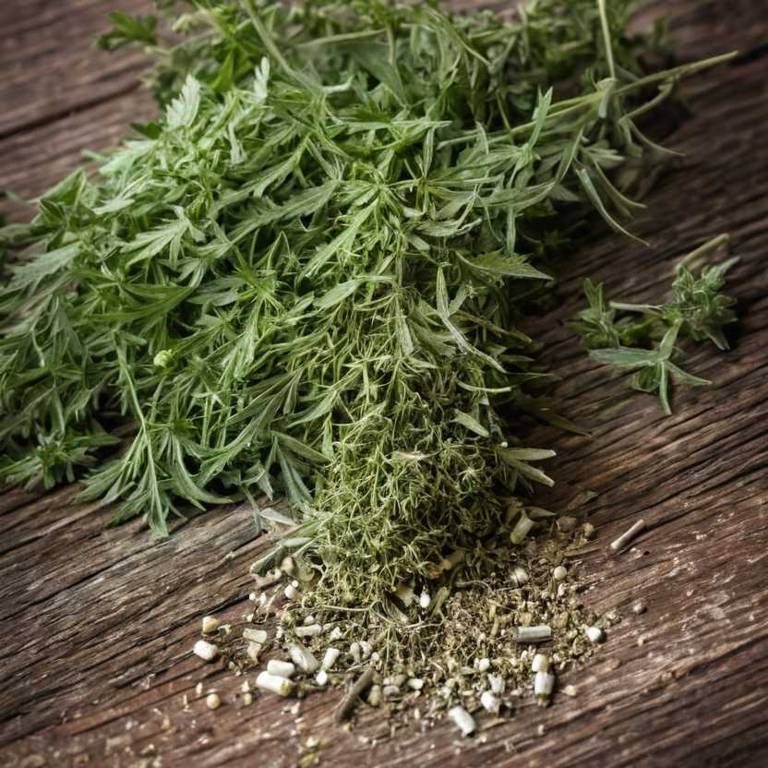Wormwood
Artemisia absinthium
Ashwagandha is a prominent medicinal herb in Ayurvedic medicine, classified as a rasayana (rejuvenator). It is primarily utilized as an adaptogen to help the body manage physical and chemical stress.
Family
Solanaceae (Nightshade)
Native Region
India, Middle East, Africa
Part Used
Root, Leaf, Berry

Botanical Identification
Wormwood, scientifically known as Artemisia absinthium, belongs to the Asteraceae family. Common names include grande wormwood and absinthe herb. It is a perennial shrub native to southern Europe and western Asia. The plant has yellow flowers, silver-green leaves, and a strong aromatic scent. Synonyms in herbal literature include absinth and grande wormwood.
Active Compounds
Wormwood contains essential oils, terpenoids, and flavonoids as its primary active compounds. These components work together to exert their effects, with terpenoids contributing to its bitter taste and potential digestive benefits. Flavonoids may support antioxidant activity, enhancing the herb's therapeutic potential.
- Essential oil
- Terpenoid
- Flavonoid
Therapeutic Indications
| System | Condidtion | Action |
|---|---|---|
| Digestive | Gastrointestinal discomfort, gastrointestinal disorders, indigestion, stomach cramps, gastrointestinal gas | Antispasmodic, carminative, antimicrobial, anthelmintic |
| Integumentary | Skin infections, eczema, insect bites | Antimicrobial, anti-inflammatory, antifungal |
| Respiratory | Respiratory infections, cough | Antimicrobial, expectorant |
Preparation Methods
Tincture: Used for digestive issues and as an appetite stimulant.
Essential oil: Used for skin conditions and as a digestive aid.
Infusion: Used for respiratory issues and as a digestive aid.
Safety Profile
Wormwood is contraindicated during pregnancy and breastfeeding due to potential harm to the fetus or infant. It may also interact with certain medications, particularly those affecting the central nervous system. Long-term use can lead to toxicity, including liver damage, necessitating caution and professional guidance.